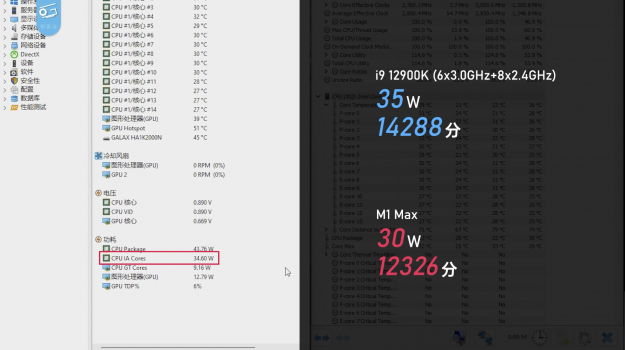No, you don't get it. It's already drawing more power to achieve those scores.
Setting TDP with Intel processors does not limit power consumption:
Intel's higher-end desktop CPU TDPs no longer communicate anything useful about the CPUs power consumption under load.

www.extremetech.com
Setting 35W TDP for Intel processors means at base clock, they are only allowed to draw that much power, but that doesn't mean they can't draw more for turbo boost. I.e.: you're only reducing the base clock. If cooling and power supply allow for it, the chip will still draw much more than the TDP you set.
I.e.: you're not looking at 12900K at 35W. If you think you are, then clearly you do not understand how Intel processors work. If the OP in Korea thought so, then they did not understand either.



